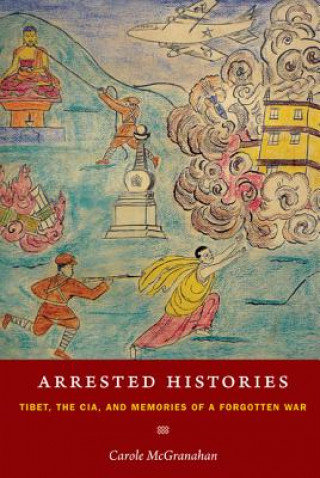
Doručení
Nákupní rádce





Nehodí se? Vůbec nevadí! U nás můžete do 30 dní vrátit
 Dárkový poukaz
V libovolné hodnotě
Dárkový poukaz
V libovolné hodnotě
S dárkovým poukazem nešlápnete vedle. Obdarovaný si za dárkový poukaz může vybrat cokoliv z naší nabídky.
Arrested Histories
 Angličtina
Angličtina
 82 b
82 b
30 dní na vrácení zboží
Mohlo by vás také zajímat


In Arrested Histories Carole McGranahan tells the little-known story of the Tibetan resistance army's war against China and relates its omission from narratives of Tibetan national history to the production of community, history and nation within the Tibetan exile community. Drawing on ethnographic research among veterans of the Tibetan resistance army, now in refugee camps in India and Nepal, she describes how Khampas, Tibetans from the eastern region of Kham, initiated armed revolts against the Chinese occupying army in the 1950s, eventually creating an all-volunteer army. The Khampa-led resistance fought against Chinese troops from the late 1950s until 1974. The Tibetan government covertly supported the resistance during the 1950s, as did the exile government until 1974. India, Nepal and the United States (secretly) also gave aid. The resistance army escorted the Dalai Lama on his escape to India in 1959. Yet the Tibetan fighters do not figure in Tibetan national history. This marginalization can be partly explained by the Dalai Lama's desire for the Tibetan struggle to be nonviolent, and by the mostly Khampa composition of the resistance army, given that Tibetan histories and identities are centred on Lhasa and central Tibet. Carole McGranahan argues that it is also linked to the creation of certain types of national community among Tibetans in exile and to "historical arrest," a practice in which pasts that clash with official ways of explaining nation, community and identity are arrested or suspended, to be told later, when the time is right.
Informace o knize
 Angličtina
Angličtina
Kategorie




 Jak nakupovat
Jak nakupovat


























